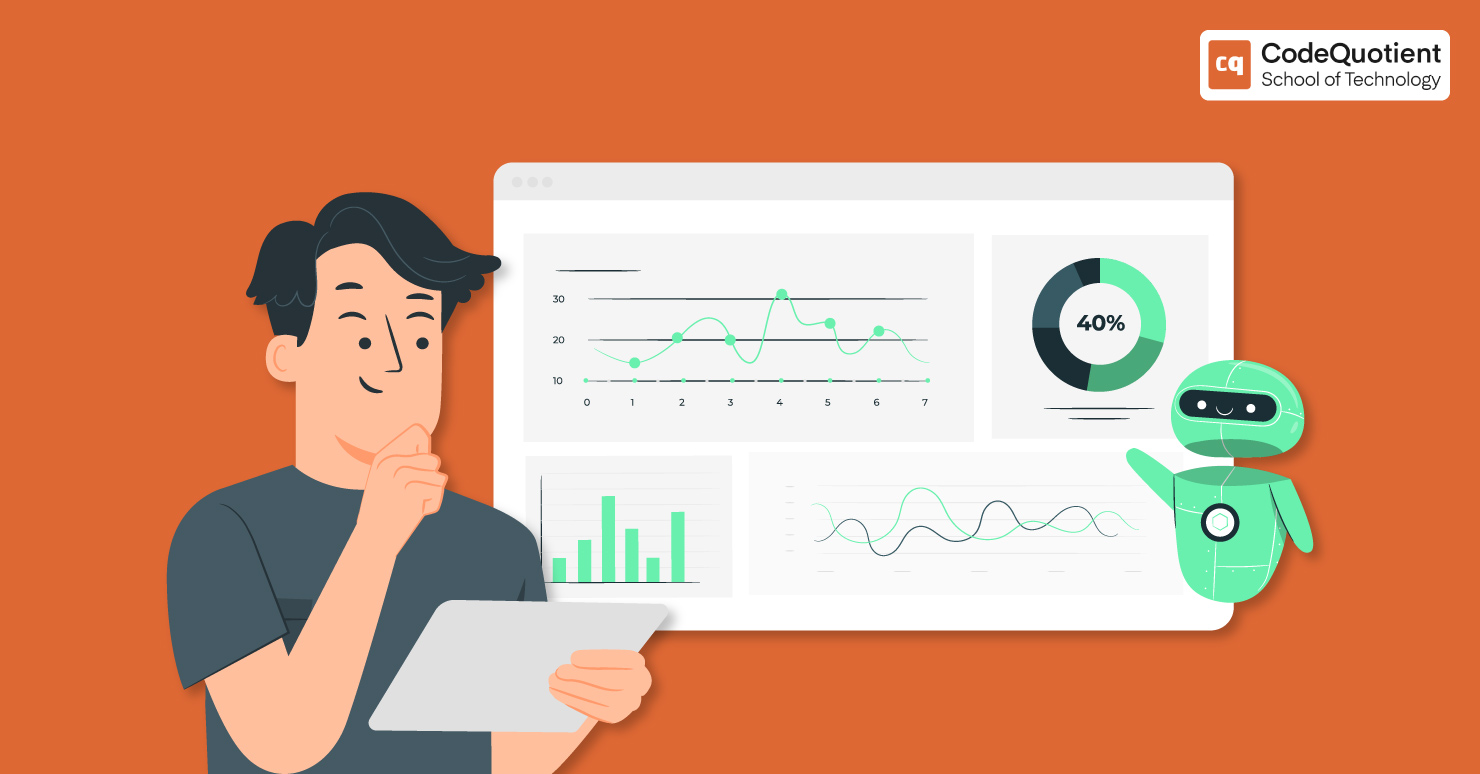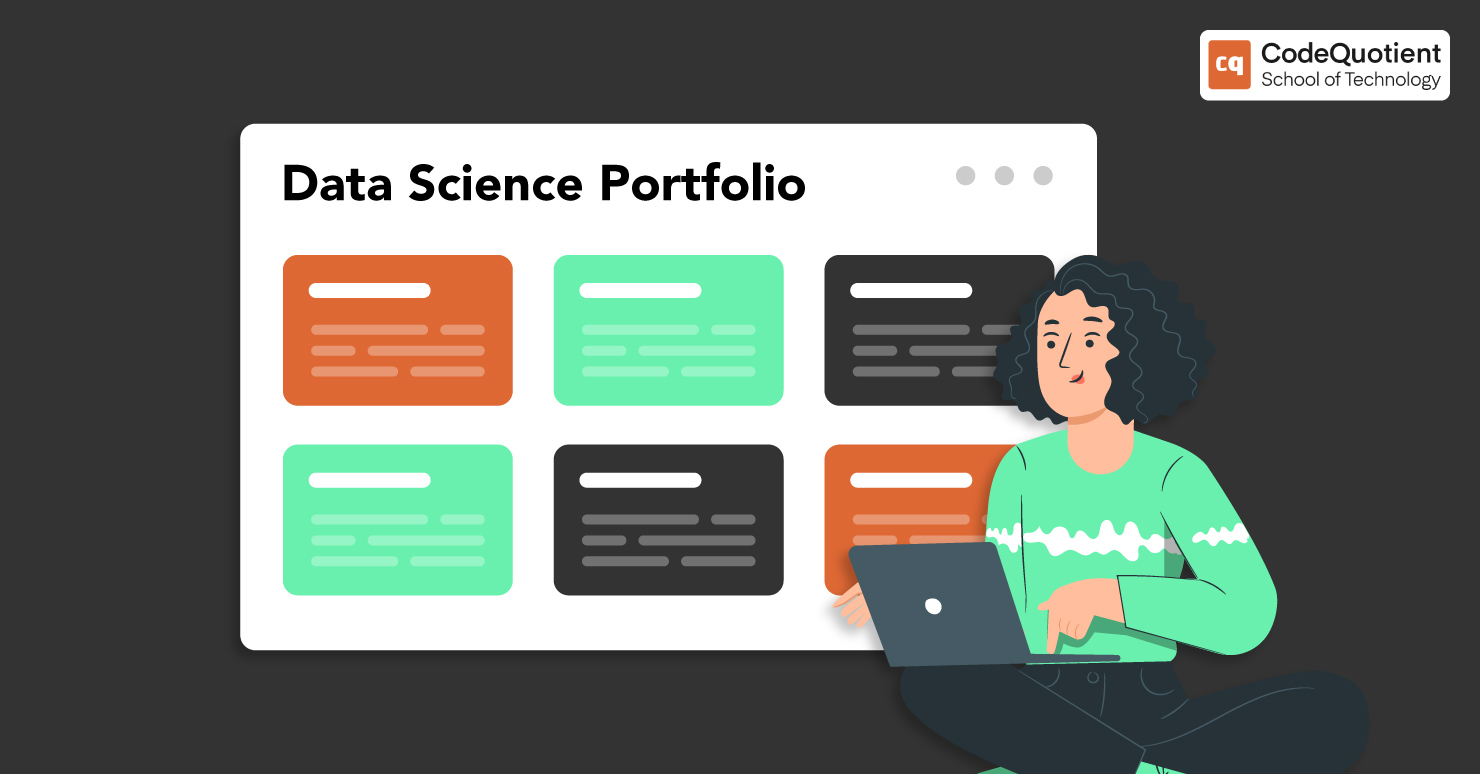Data science has become one of the most popular and in-demand careers in recent years. The need for data science skills will only intensify with the world becoming increasingly data-driven. In such a scenario, data science after BCA degree is an excellent option. However, having a BCA degree may not be enough to stand out in the job market nowadays. This is where developing a stellar data science portfolio comes in.
Why is Data Science Significant Today?
Data science incorporates concepts from various fields like mathematics, statistics, computer science, and domain expertise to extract insights from structured and unstructured data.
These actionable insights help organisations across sectors enhance efficiency, make data-driven decisions, and gain a competitive edge. This widespread applicability is the prime reason why industry data science roles are highly sought after.
Relevance of a BCA Degree for Data Science Roles
A BCA curriculum offers the perfect base to build upon for a career in data science. It equips students with proficiency in programming languages like C, C++, Java, Python, database management skills, statistical knowledge, and a problem-solving attitude.
These core competencies correspond well to the prerequisites for data science jobs. Hence, BCA graduates can seamlessly transition into data science-related roles.
Why are Data Science Portfolios Crucial After BCA Degrees?
In the data science domain, practical demonstration of skills through relevant projects holds more weight than academic degrees alone. This is exactly what a data science portfolio achieves.
Data science aspirants who develop portfolios showcase both – their domain knowledge and ability to apply concepts to solve real-world problems.
What are the Must-Have Skills for Data Science After BCA?

While a BCA degree furnishes the foundation, there are some key skill sets that students need to build specifically for data science job roles and in their portfolios. These include:
1. Statistical Analysis and Mathematics
A firm grip on probability, statistics, linear algebra, and calculus is mandatory for extracting meaningful insights from data. BCA syllabus equips students with these skills to an extent, but further strengthening them is vital.
2. Programming Languages
Proficiency in Python and R is integral as they are the most popular languages for data science. Along with structured languages like C/C++, knowledge of Python for machine learning applications gives an added advantage.
3. Data Visualisation Approaches
Converting raw data into impactful visual charts, plots, and dashboards is an expectation from data scientists. Tools like Tableau, PowerBI, Matplotlib, etc., are thus important additions to the skill set.
4. Machine Learning and AI
Machine learning and AI abilities take precedence with the rising focus on predictive modelling and automation. Knowledge of supervised and unsupervised algorithms helps tackle data science problems better.
Why Build a Data Science Portfolio After BCA?
In the thriving job market, a portfolio for data science after BCA degree effectively allows BCA graduates to showcase practical abilities beyond academic qualifications. The advantages of developing a portfolio are multifold:
1. Demonstrates Hands-on Abilities
A portfolio highlights the capability of applying theoretical data science concepts to real-life problems using the right tools – a skill recruiters specifically look for.
2. Adds Credibility Over Fresher Resumes
For fresh BCA graduates who lack industry experience, a portfolio serves as proof of skills. This gives recruiters confidence in a candidate’s potential.
3. Differentiated Candidates with Specialised Skills
An impressive portfolio provides deeper insights into a candidate’s data science competencies, thus differentiating them from the competition.
What are the Steps to Build a Data Science Portfolio After BCA Degree?
The portfolio development process involves strategic planning and meticulous execution. Key aspects include:
1. Determine Domains of Interest
Assess personal strengths and inclinations within data science after a BCA degree – be it towards analytics, machine learning, or visualisation- to make decisions accordingly.
2. Identify Relevant Datasets
Pick out curated public datasets or source actual data from industries matching personal interests for portfolio projects.
3. Implement Techniques
Performed data preprocessing, applied ML algorithms, developed models, etc. – backed with mathematical and coding capabilities.
4. Visualise for Impact
Create powerful data visualisations like dashboards, reports and summaries that provide actionable business insights.
5. Document Projects Meticulously
Keep track of data sources, tools, processing steps, findings, challenges and results for every project through images, code samples, videos, etc.
6. Incorporate Internships and Online Certifications
Include additional credentials like online courses, certifications, internship experiences, etc., to provide more credibility.
How to Showcase the Data Science Portfolio?
Merely developing good projects for data science after BCA degree is not enough. You need to present your portfolio impressively to boost job prospects:
1. Build an Online Portfolio Platform
Leverage hosted portfolio solutions like Tableau Public, GitHub, and Kaggle profile or create a personal portfolio website for showcasing work.
2. Structure Content Thoughtfully
Use an intuitive, logical flow across portfolio sections and offer brief yet descriptive captions for graphs, images, code samples, etc.
3. Highlight Relevant Projects
Emphasise important projects, methodologies adopted, and key data insights derived rather than the quantity of content. Quality over quantity.
4. Incorporate Feedback
Have mentors and experts review portfolio drafts. Implement suggested changes to address gaps, bugs or scope for improvements.
How Do you Enhance the Portfolio for Career Advancement?
The job search is not the end goal. To sustain career growth even post-recruitment, as a BCA graduate, you should persistently evolve your portfolio by:
1. Engaging with the Data Community
Stay active on forums, interact with industry experts and join meetups to exchange ideas for enhancing skills.
2. Seeking Mentorship
Get advice from mentors – academicians, and data science veterans for strengthening portfolio areas that need improvement.
3. Embracing Failures as Learning
View failed or ineffective attempts as opportunities to grow instead of getting discouraged by portfolio gaps.
4. Upskilling Continuously
Keep learning emerging data tools/languages through online programs and certifications for portfolio enrichment.
Accelerate your Career Aspirations!
A relevant, well-rounded portfolio for data science after BCA degree undoubtedly amplifies the potential to get recruited in coveted data roles. Right from conceptualisation to execution, creating a portfolio undoubtedly demands rigour.
However, it is a rewarding investment that sets aspirants apart. Once the portfolio development momentum begins, pursuing growth becomes a lifelong, rewarding learning curve.
So, if you are a BCA student inclined towards data science, embark on your portfolio-building journey today by joining CodeQuotient School of Technology.
Our Bachelor of Computer Application (BCA) + UG Program in Software Engineering enables students to not only elevate their problem-solving skills with C/C++ programming but also, with excellent mentorship, they can get the proper guidance to create a portfolio that meets tech industry standards.
To know more, contact us today!




